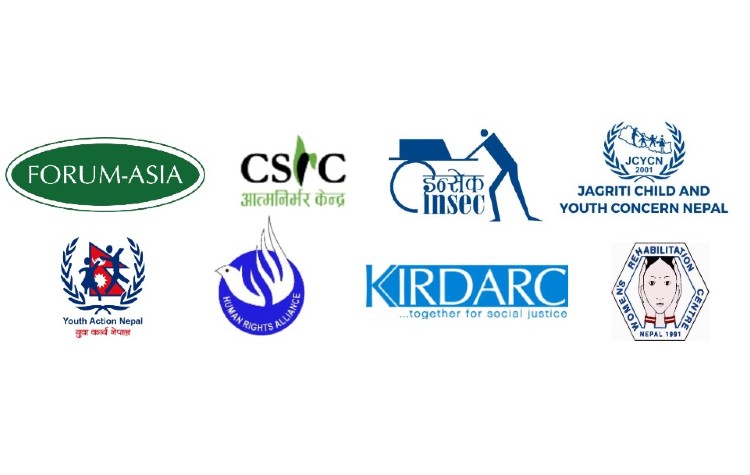
Nepal: End impunity for caste-based discrimination and killings
(Bangkok/Kathmandu, 09 June 2020) – The recent killings and attacks against the Dalits exemplify the deep-rooted caste-based discrimination and impunity in Nepal and it must end, the Asian Forum for Human Rights and Development (FORUM-ASIA) and seven of its member organisations in Nepal, said.
The attack against a Dalit man Nawaraj BK and his friends on 23 May resulted in six deaths.[1] Nawaraj’s relationship with a so-called upper-caste girl was deemed to be the major reason for their deaths. This incident is just one of many caste-based discrimination and killings in Nepal.
‘Dalits, known as the untouchables in the Hindu caste system, have suffered for generations from public shaming, insults and various forms of intimidation. As atrocities against Dalits continue on a daily basis across the country, the government’s failure to uphold the rule of law has created a culture of impunity that worsens their sufferings,’ said the rights groups.
According to the Kathmandu-based Informal Sector Service Centre (INSEC), in 2019 alone, 61 cases of human rights violations recorded in Nepal were related to the practice of untouchability, and Dalits were among the top three ethnic groups targeted the most.[2]
Caste-based discrimination is against the Constitution and criminalised in Nepal. Article 24 of Nepal’s Constitution stipulates that ‘No person shall be treated with any kind of untouchability or discrimination [..] on grounds of caste, ethnicity, origin, community [..].’ A similar provision was reaffirmed in the Caste-Based Discrimination and Untouchability (Offence and Punishment) Act, 2068 (2011). Anyone convicted of practising racial discrimination or untouchability shall be liable to imprisonment or a fine.
Despite the clear national legislation and having acceded to the International Convention on the Elimination of All Forms of Racial Discrimination, the Government of Nepal fails to uphold its commitment to protect the rights of Dalits.
More than a decade after Nepal was declared an untouchability-free nation in 2006, the caste-based discrimination and untouchability practices are still rampant with impunity.
The recent killings of the Dalit youths have sparked an outcry in the country and drew the attention of the Parliament, the Ministry of Home Affairs and the National Human Rights Commission of Nepal. However, the excessive forces used against the Dalit rights activists protesting for justice have raised doubts on the impartiality and credibility of the investigation.
FOURM-ASIA and its member organisations urge the Nepali authorities to hold perpetrators accountable through an impartial and independent investigation into the killing of Dalits in the country. The Government of Nepal should protect the safety and security of Dalit community in Nepal and ensure that caste-based discrimination and attacks will not happen again.
Endorsed by:
- Community Self Reliance Centre (CSRC)
- Informal Sector Service Center (INSEC)
- Jagriti Child and Youth Concern Nepal (JCYCN)
- Karnali Integrated Rural Development and Research Centre (KIRDARC)
- National Alliance for Human Rights and Social Justice (Human Rights Alliance)
- Women’s Rehabilitation Centre (WOREC)
- Youth Action Nepal (YOAC)
For further information, please contact:
- South Asia Programme, FORUM-ASIA at[email protected]
For media inquiries, please contact:
- Yi-Lan, Communication and Media Programme, FORUM-ASIA at [email protected]
[1] https://thehimalayantimes.com/nepal/chaurjahari-incident-body-of-sixth-missing-youth-found-after-10-days/
[2] https://www.insec.org.np/wp-content/uploads/2020/02/Nepal-Human-Right-Year-Book-2020-Eng.pdf
***
For a PDF version of this statement in English, click here
For a PDF version of this statement in Nepali, click here



